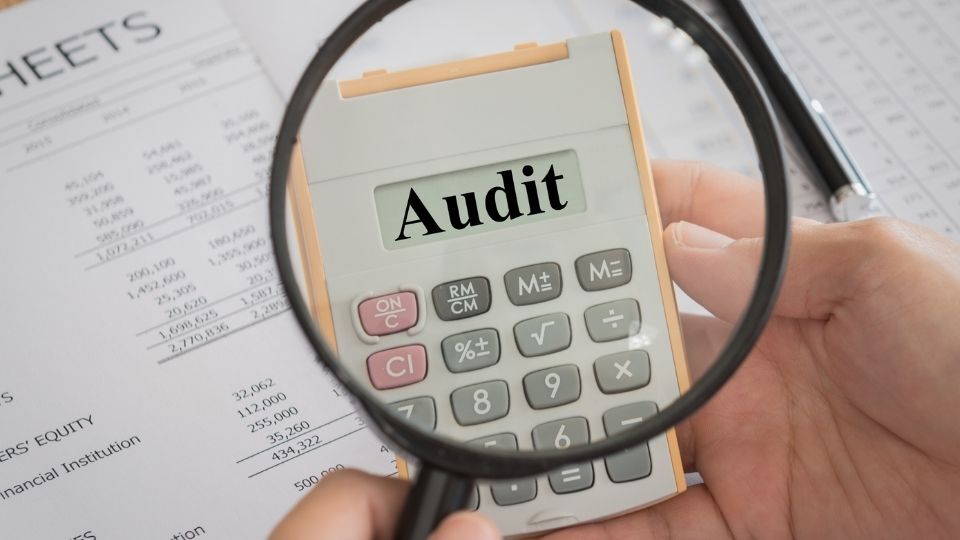A business audit is a systematic examination of a company’s financial records, operational procedures, and compliance status. For small businesses, this process goes beyond just checking the numbers — it evaluates how efficiently and legally the business is running.
For many small businesses, the term “audit” can sound intimidating. However, when approached strategically, it’s a valuable tool that can highlight opportunities to improve performance, ensure financial transparency, and strengthen credibility with stakeholders, including investors, suppliers, and customers.
A small business audit doesn’t necessarily mean your company has done something wrong. It can be a proactive step, initiated internally, to prepare for external scrutiny or to improve internal governance.
From a regulatory standpoint, certain industries and business sizes are legally required to conduct audits. But even if you’re not obliged by law, voluntarily performing audits can bring benefits — especially in a business landscape where transparency and operational efficiency are increasingly important trends.
Types of Business Audits
Not all business audits are the same. Small businesses may face different kinds of audits depending on industry regulations, financial requirements, or internal governance goals. Understanding the main types will help you prepare for the process and use the audit’s findings to your advantage.
1. Financial Audit
A financial audit is the most common type of business audit. It involves an independent review of a company’s financial statements to ensure they are accurate, complete, and compliant with accounting standards such as IFRS (International Financial Reporting Standards).
For small businesses, a financial audit can:
- Verify the accuracy of profit and loss statements, balance sheets, and cash flow reports.
- Improve credibility with banks, investors, and suppliers.
- Highlight discrepancies that help in fraud detection and prevention.
Even if not legally required, a financial audit can support better decision-making and help a small business maintain a clear financial picture.
2. Compliance Audit
A compliance audit examines whether your business adheres to relevant laws, regulations, and internal policies. For example:
- Employment laws and workplace safety regulations.
- Data protection and privacy compliance, such as the UK GDPR.
- Industry-specific licensing requirements.
For small businesses in regulated industries — such as healthcare, finance, or construction — compliance audits can prevent costly fines and reputational damage.
3. Operational Audit
An operational audit assesses the efficiency and effectiveness of a company’s operations. Unlike financial or compliance audits, the focus here is on performance and productivity. It might examine:
- Workflow processes.
- Supply chain management.
- Quality control systems.
The goal is to identify areas where resources could be better utilised or waste reduced. Many small business owners use operational audits as part of a continuous improvement strategy.
4. Tax Audit
A tax audit is conducted by HM Revenue & Customs (HMRC) to verify that a business’s tax returns are accurate. This form of business audit can be triggered by:
- Random selection.
- Discrepancies in tax filings.
- Industry-specific risk indicators.
Small businesses should maintain clear, organised records and be prepared to justify any deductions or exemptions claimed on tax returns.
5. Internal vs External Audits
While the above categories focus on the scope of an audit, there’s also a distinction in who conducts it:
- Internal audits are carried out by employees or internal audit teams.
- External audits are conducted by independent third parties, often required by law or contract.
Both approaches can add value, and many small businesses choose a hybrid strategy — conducting internal audits throughout the year to prepare for periodic external reviews.
Why a Business Audit is Important for Small Businesses
For many small business owners, the idea of a business audit may seem like an unnecessary expense or a sign that something has gone wrong. In reality, audits are an important strategic tool that can strengthen a company’s position in the market.
1. Enhances Financial Transparency
A well-executed business audit provides a clear, objective view of your financial position. For small businesses looking to attract investors, secure bank loans, or build supplier trust, audited financial statements serve as proof of integrity and stability.
Transparency is a growing small business trend, especially as customers and partners become more conscious of ethical business practices and sound financial management.
2. Ensures Regulatory Compliance
The UK regulatory environment is constantly evolving. From employment law changes to data protection updates, non-compliance can be costly. A compliance-focused business audit ensures that your operations align with current legal requirements, helping you avoid fines, legal disputes, and reputational damage.
For small businesses in heavily regulated sectors — such as finance, healthcare, and construction — staying compliant isn’t optional; it’s survival.
3. Identifies Risks Early
An effective business audit highlights potential risks before they become major problems. This could mean uncovering financial irregularities, operational inefficiencies, or security weaknesses.
By spotting these issues early, small businesses can take preventive action — a practice that’s increasingly valued in risk-conscious industries and among proactive business leaders.
4. Supports Strategic Decision-Making
A detailed business audit provides valuable data that can guide long-term strategy. By understanding which areas of your business are performing well and which need improvement, you can:
- Allocate resources more effectively.
- Refine operational processes.
- Identify profitable markets or service areas.
In recent years, small business trends have shown a rise in data-driven decision-making, and audits play a critical role in supplying reliable, actionable insights.
5. Strengthens Credibility and Trust
For small businesses competing with larger, well-established brands, trust is a valuable currency. Having your financials and operations verified through a business audit demonstrates professionalism, accountability, and commitment to best practices.
This credibility can be the deciding factor when a potential client is choosing between you and a competitor.
The Business Audit Process – Step-by-Step for Small Businesses
While every business audit has its own nuances depending on the type, industry, and scope, most follow a structured process. Knowing the stages in advance helps small business owners prepare thoroughly, avoid unnecessary stress, and gain the most value from the audit.
1. Planning and Scoping
The audit process begins with defining its purpose and scope. This stage includes:
- Determining the type of business audit (financial, compliance, operational, or tax).
- Establishing timeframes and deadlines.
- Identifying key stakeholders and responsible personnel.
For small businesses, clear scoping ensures the audit stays focused and cost-effective, rather than wasting resources on unnecessary areas.
Tip: If the audit is external, your auditor will usually request initial meetings to discuss scope, objectives, and required documents.
2. Gathering Documentation
This is one of the most important steps in a business audit. Auditors will require evidence to support every claim, transaction, and process reviewed.
Typical documents include:
- Financial statements (profit & loss, balance sheet, cash flow).
- Bank statements and reconciliations.
- Payroll records.
- Invoices and receipts.
- Tax returns.
- Contracts, licences, and permits.
For a small business, keeping these documents organised throughout the year — preferably in a secure digital system — will make this stage faster and less stressful.
3. Conducting Fieldwork
The “fieldwork” stage is where the actual examination happens. For a business audit, this may involve:
- Reviewing records in detail.
- Conducting interviews with staff.
- Observing operational processes.
- Testing internal controls.
Small business owners should ensure relevant staff are available to answer questions and provide clarifications quickly, as delays here can extend the audit timeline.
4. Analysing Findings
Once the evidence is collected, auditors will analyse it to determine whether financial statements are accurate, compliance obligations are met, and operational processes are efficient.
In a small business audit, this stage might reveal:
- Errors in accounting records.
- Missing documentation.
- Policy gaps or procedural inefficiencies.
- Opportunities for process improvement.
5. Reporting Results
The audit findings are compiled into a formal report. This document will usually include:
- An executive summary.
- A statement on compliance and accuracy.
- Detailed findings.
- Recommendations for improvement.
For small businesses, this report is not just an evaluation; it’s a roadmap for growth, compliance, and operational refinement.
6. Post-Audit Follow-Up
A business audit isn’t complete when the report is delivered. The real value comes from acting on recommendations, addressing weaknesses, and implementing better controls.
. The person responsible for this is usually the business strategy consultant.
How to Prepare for a Business Audit – Small Business Checklist

Preparation is the difference between a smooth business audit and a stressful one. Small businesses that plan ahead not only save time and money but also present themselves as organised, credible, and professional.
Here’s a comprehensive checklist to guide you through preparation:
1. Organise Your Financial Records
- Ensure all accounting entries are up-to-date.
- Match bank statements to your internal ledgers.
- Store receipts, invoices, and contracts in a logical filing system (preferably digital).
- Review your payroll records for accuracy.
Why it matters: Missing or disorganised records can lead to audit delays and create doubts about the reliability of your financial data.
2. Review Compliance Requirements
- Check that you hold valid licences and permits for your operations.
- Verify compliance with employment laws, data protection (UK GDPR), and health & safety regulations.
- Confirm that tax filings are accurate and submitted on time.
Why it matters: A compliance gap discovered during a business audit can result in fines, legal issues, or reputational harm.
3. Prepare Internal Policies and Procedures
- Update employee handbooks and operational manuals.
- Document internal control measures (e.g., approval workflows, expense authorisations).
- Ensure cybersecurity policies are current and implemented.
Why it matters: Well-documented policies demonstrate strong governance — a factor that auditors look for in a healthy business.
4. Conduct a Pre-Audit Review
- Perform an internal mini-audit to spot potential red flags.
- Use a business audit checklist tool or template for consistency.
- Resolve any obvious discrepancies before the official audit begins.
Why it matters: This proactive step allows you to correct small errors before they become major findings.
5. Assign a Point of Contact
- Designate one person (often the financial controller or business owner) to liaise with the auditor.
- Ensure they understand the audit’s scope and can coordinate with other departments.
Why it matters: A single point of contact prevents miscommunication and ensures a faster, smoother process.
6. Brief Your Team
- Inform relevant staff about the upcoming business audit.
- Explain their role in providing information or answering questions.
- Emphasise the importance of honesty and cooperation.
Why it matters: Team readiness ensures auditors receive accurate answers promptly, avoiding unnecessary delays.
7. Set Up a Workspace for Auditors
- Provide a quiet area with access to necessary files (physical or digital).
- Arrange secure access to accounting software, if applicable.
Why it matters: A well-prepared environment creates a positive impression and speeds up fieldwork.
8. Keep Communication Open
- Be transparent about potential problem areas.
- Provide requested documents promptly.
- Follow up on auditor queries in writing where necessary.
Why it matters: Open communication builds trust and minimises the risk of misunderstandings during the business audit.
Common Challenges in a Business Audit and How to Overcome Them
Even well-managed small businesses can encounter obstacles during a business audit. The key is recognising these challenges early and having strategies in place to deal with them.
1. Disorganised Records
The Problem:
Missing receipts, inconsistent ledgers, and poorly filed contracts are some of the most common issues that slow down a business audit.
The Solution:
- Maintain an ongoing record-keeping system — preferably digital and backed up securely.
- Schedule quarterly internal checks to ensure documentation is up-to-date.
- Use cloud-based accounting software to centralise financial data.
2. Inconsistent Accounting Practices
The Problem:
Different staff members using different bookkeeping methods can lead to discrepancies in financial records.
The Solution:
- Standardise accounting procedures and train all relevant staff.
- Use a single accounting platform to ensure uniformity.
- Review and reconcile accounts regularly before an audit is due.
3. Lack of Compliance Awareness
The Problem:
Small business owners often focus on day-to-day operations and may not be aware of new legal or regulatory requirements. This can result in non-compliance being uncovered during a business audit.
The Solution:
- Subscribe to industry-specific regulatory updates.
- Work with legal or compliance consultants to perform periodic reviews.
- Integrate compliance training into staff onboarding.
4. Inefficient Communication with Auditors
The Problem:
Slow or incomplete responses to auditor requests can delay the process and create unnecessary tension.
The Solution:
- Assign a dedicated point of contact before the audit begins.
- Keep a shared document to track auditor requests and deadlines.
- Respond in writing where possible to avoid misunderstandings.
5. Unclear Internal Controls
The Problem:
When internal approval processes or spending authorisations are poorly documented, auditors may question the reliability of financial data.
The Solution:
- Clearly define internal control measures and document them.
- Review controls annually to ensure they are still effective.
- Use automated approval systems where possible.
6. Overlooking the Value of the Audit
The Problem:
Some small businesses treat the audit as a regulatory burden rather than an opportunity for improvement, missing valuable insights.
The Solution:
- Approach a business audit as a strategic review, not just a compliance exercise.
- Use findings to improve efficiency, reduce waste, and strengthen governance.
- Schedule a post-audit strategy session to implement changes promptly.
Frequently Asked Questions
1. What is the main purpose of a business audit?
The main purpose of a business audit is to verify the accuracy of financial records, assess compliance with legal and regulatory requirements, and evaluate operational efficiency. For small businesses, it’s a tool for ensuring transparency, reducing risks, and identifying opportunities for improvement.
2. How often should a small business have a business audit?
The frequency of a business audit depends on your legal obligations, industry standards, and strategic needs. Many small businesses conduct annual audits to maintain financial integrity and prepare for regulatory inspections. However, some opt for quarterly or semi-annual internal audits to keep operations in check.
3. Is a business audit mandatory for all small businesses in the UK?
No, a business audit is not mandatory for all small businesses in the UK. Companies below certain turnover, asset, and employee thresholds may be exempt from statutory audits. However, some industries have specific requirements, and lenders or investors may request an audit as part of funding agreements.
4. How long does a business audit take?
A business audit can take anywhere from a few days to several weeks, depending on the size of the business, the complexity of its operations, and the scope of the audit. Small businesses with organised records and clear processes typically complete audits faster than those with disorganised documentation.
5. What is the difference between an internal and external business audit?
An internal business audit is conducted by employees or an in-house audit team, often to prepare for external reviews or improve internal processes. An external business audit is carried out by an independent third party, usually to meet statutory or contractual requirements. Both provide valuable insights, but external audits carry greater weight with stakeholders.
6. What documents are needed for a business audit?
Key documents for a business audit include:
- Financial statements (profit & loss, balance sheet, cash flow)
- Bank statements and reconciliations
- Payroll records
- Tax filings
- Licences and permits
- Contracts and supplier agreements
- Internal policies and procedures
7. How can a small business prepare for a business audit?
To prepare for a business audit, small businesses should:
- Keep financial records accurate and up-to-date.
- Maintain organised compliance documentation.
- Conduct internal reviews to spot and fix issues before the audit.
- Assign a point of contact for auditor communication.
8. What happens if problems are found during a business audit?
If a business audit reveals errors, non-compliance, or inefficiencies, the auditor will note them in the final report. For small businesses, these findings should be seen as opportunities for corrective action — whether that means improving internal controls, updating compliance processes, or refining operational workflows.
9. Can a business audit help improve profitability?
Yes. While a business audit isn’t designed solely to increase profits, it often highlights inefficiencies, waste, and missed opportunities that can be addressed to improve financial performance. Many small businesses use audit recommendations to streamline operations and boost profitability over time.
10. What are the costs involved in a business audit?
The cost of a business audit varies depending on the size of the business, the type of audit, and the auditor’s fees. While small businesses may see it as an added expense, many find that the long-term benefits — such as risk reduction, improved credibility, and operational efficiency — outweigh the upfront cost.
Take Control of Your Next Business Audit
A well-prepared business audit can be the turning point for your small business — revealing opportunities, reducing risks, and boosting credibility. Don’t wait until it’s required; make audits a proactive part of your growth strategy.
Contact The Taxcom today
Table of Content

Our Content Writing Team boasts a proven track record of crafting engaging and impactful content that drives success and achieves results.







